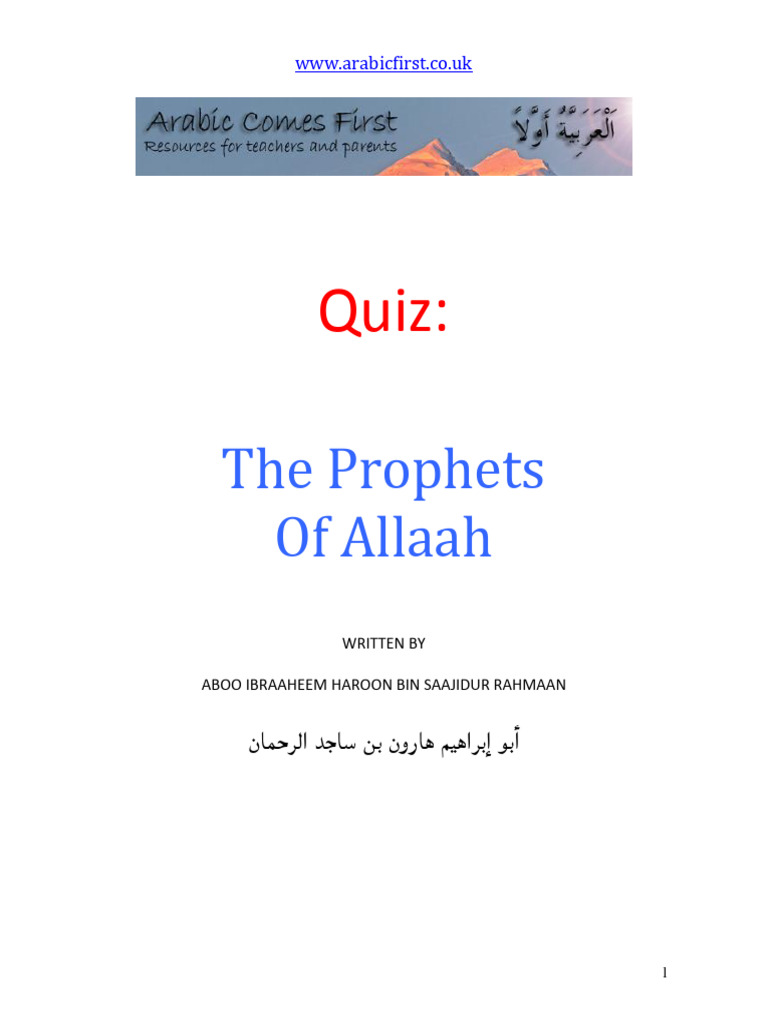The teachings of the Bahá’í Faith illuminate a profound understanding of the Prophets and their distinguished roles in the human experience. This exploration unveils not merely the characteristics of these luminaries but also delves into the underlying themes that engender such fascination among followers and scholars alike. At the very heart of this inquiry lies the question: What precisely distinguishes the Prophets?
To begin with, it is essential to acknowledge the fundamental belief in the concept of “Manifestations of God.” In the Bahá’í viewpoint, these Manifestations are not merely prophets in the conventional sense but are rather seen as unique, divine educators sent at different epochs to guide humanity toward spiritual maturity. Their messages are tailored to the specific needs and capacities of the people to whom they are sent, which inherently constitutes a key distinguishing feature.
One of the most captivating aspects is the inherent unity of these Manifestations. Unlike in many religious traditions, where figures may be seen in opposition to one another, Bahá’í teachings underscore a cohesive thread that connects them. From Moses to Christ, Muhammad, and Bahá’u’lláh, their teachings are viewed as successive chapters in an evolving divine plan. This conception engenders an atmosphere of reverence and admiration, as each Figure is perceived as building upon the foundation laid by their predecessors.
Crucially, the nature of their revelation poses another point of distinction. Unlike worldly leaders who may wield authority through societal structures or political machinations, the Prophets of God possess an innate spiritual authority, which is rooted in their direct communion with the divine. Their revelations are not merely personal insights but are characterized by a transcendental quality that transforms lives and societies. This divine connection bestows upon them the ability to articulate profound truths that resonate across ages and cultures.
Moreover, the Prophets epitomize the balance between authority and compassion. They establish laws and principles intended to foster social harmony and moral rectitude, while simultaneously embodying an empathy that reflects divine love. This duality invites adherents to develop a sense of accountability alongside a rich emotional connection to the divine. The narrative surrounding their lives often illustrates personal sacrifices made for the elevation of humanity, further enhancing their profiles as paragons of virtue.
Their teachings often address the fundamental challenges faced by civilizations, thereby situating them within a pragmatic context. For instance, the principles of justice, equality, and unity are recurrent themes that transcend temporal and cultural boundaries. The ability of these teachings to adapt and remain relevant, while still preserving core values, speaks volumes about the prophetic role they play in contemporary society. This adaptability reveals an understanding of human evolution, indicating that divine guidance must correspond with human development.
Additionally, the concept of progressive revelation serves as a cornerstone for distinguishing the Prophets. Each Manifestation provides insights that reflect a stage of societal advancement, suggesting that humanity is on a continuum of spiritual and ethical growth. Bahá’í teachings posit that as humanity matures, so too does its understanding of divine truth. This leads to a fascinating dialogue on the relationships between religion, science, and the arts, as seekers strive to harmonize disparate fields of inquiry under the umbrella of divine guidance.
Another intriguing aspect lies in the unique and personal experiences of individuals with these Manifestations. The insights gained by followers often stem from personal study, meditation, and the application of spiritual principles in daily life. As adherents cultivate their relationship with the Teachings, they frequently report transformative shifts in perception and behavior, reinforcing the notion of the Manifestations as educators, guides, and facilitators of personal growth. This relationship emphasizes personal agency and responsibility, encouraging adherents to be active participants in their spiritual journeys.
It is also pertinent to explore the manner in which the Prophets challenge societal norms and beliefs. Through their teachings, they often confront prevailing injustices and call for a reformation in societal values. The courage exhibited in their teachings can inspire followers to also confront the injustices of their own age. Such transformative power is part of what captivates the imagination and hearts of many. The Prophets do not merely provide comfort; they ignite a passion for change and improvement within communities.
In conclusion, the distinctions that set apart the Prophets within the Bahá’í framework extend far beyond their roles as mere messengers. Their unified yet progressive approach, divine authority, and deep connection to the challenges faced by humanity situate them uniquely in the spiritual landscape. The ethos of love, justice, and communal responsibility encapsulated within their teachings continues to resonate, inviting all to partake in a greater understanding of life, interconnectedness, and the divine purpose that underpins our existence. As humanity continues its journey toward maturity, these teachings serve not only as reminders of what has been revealed but as guiding lights illuminating the path ahead.
